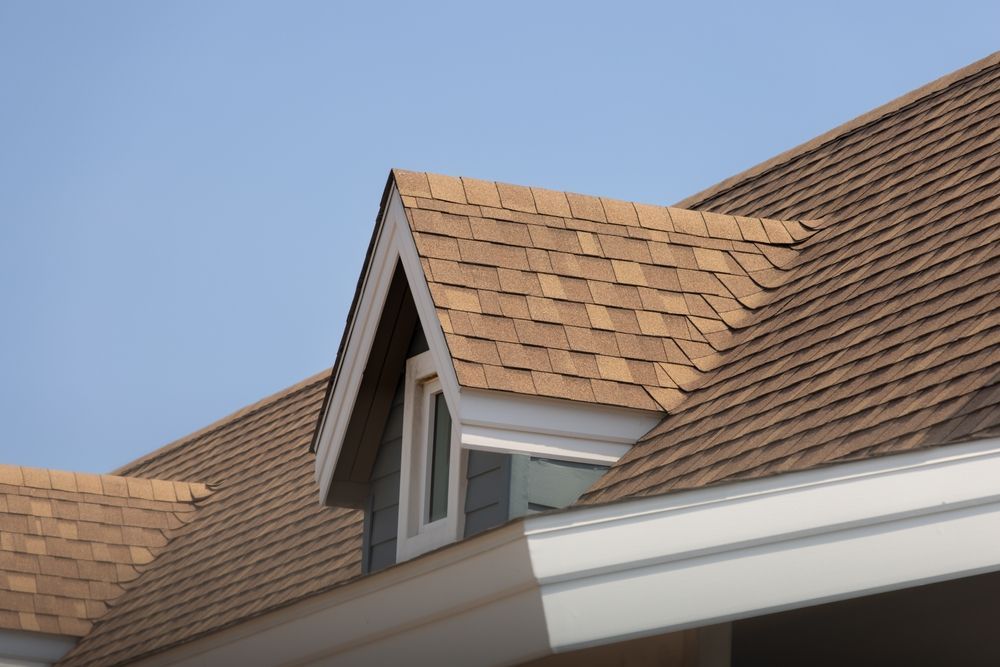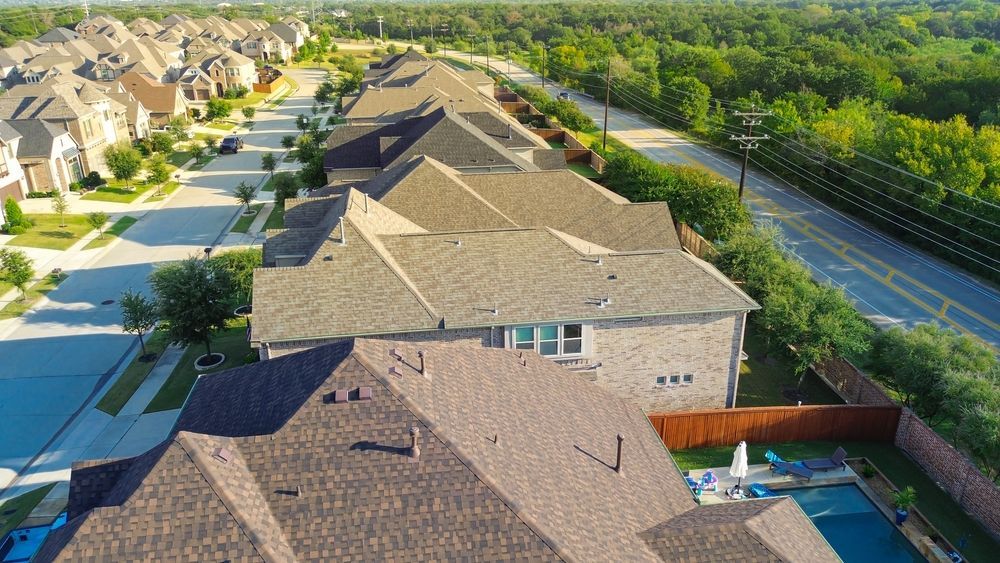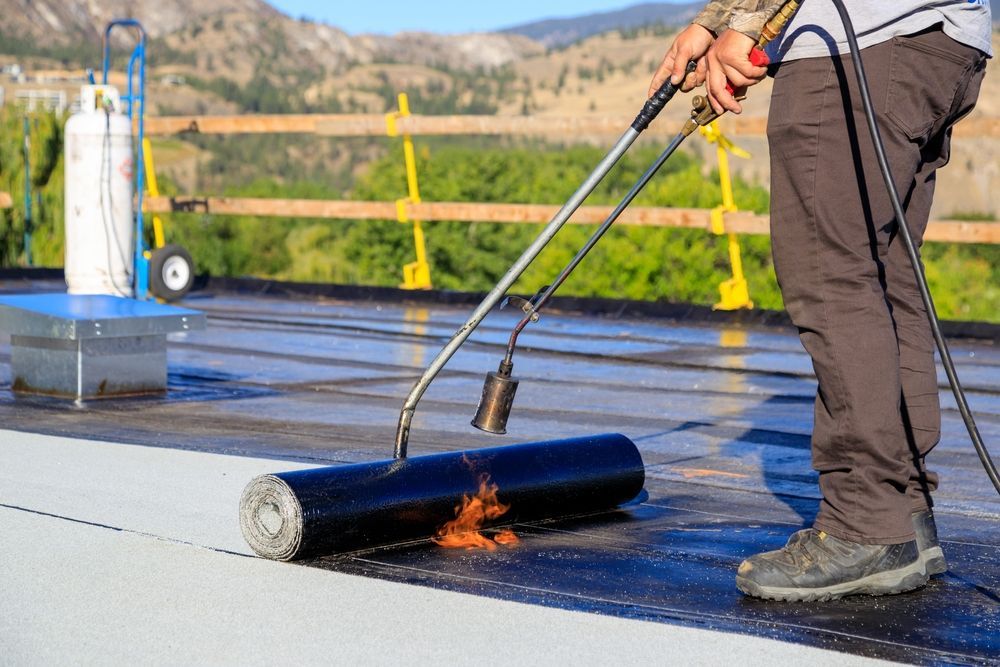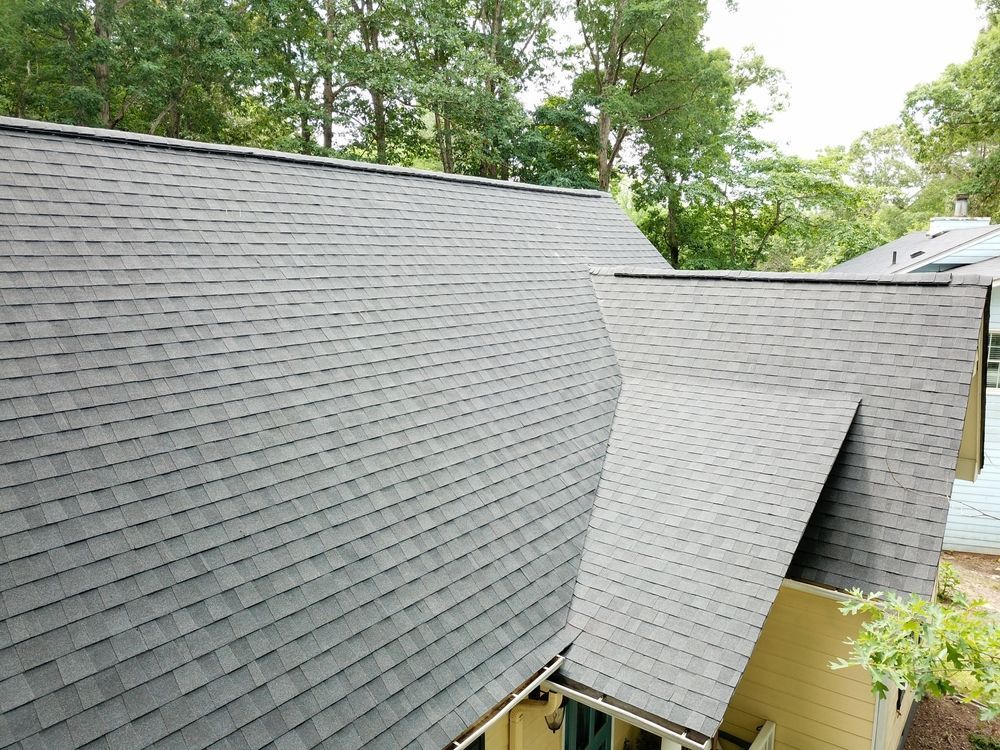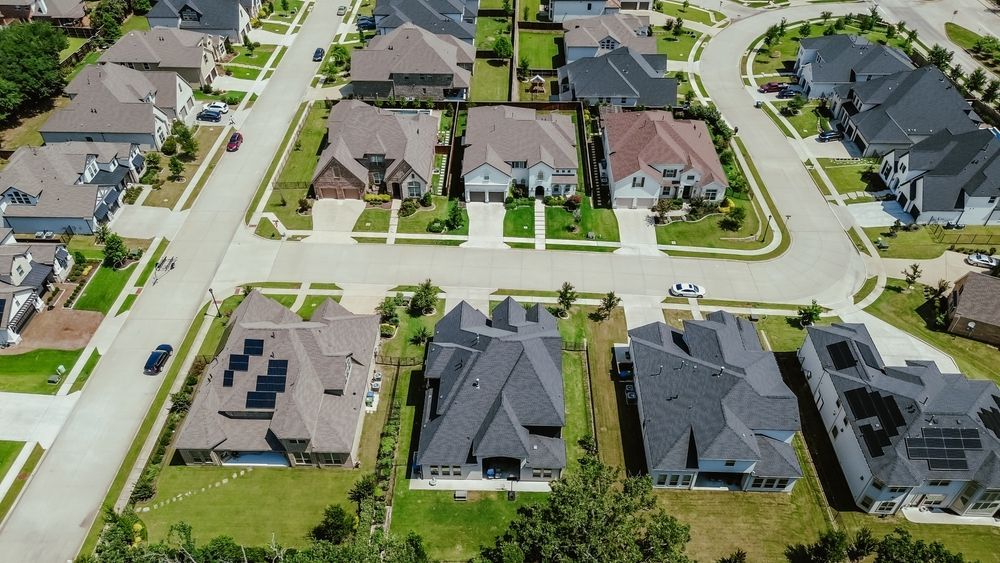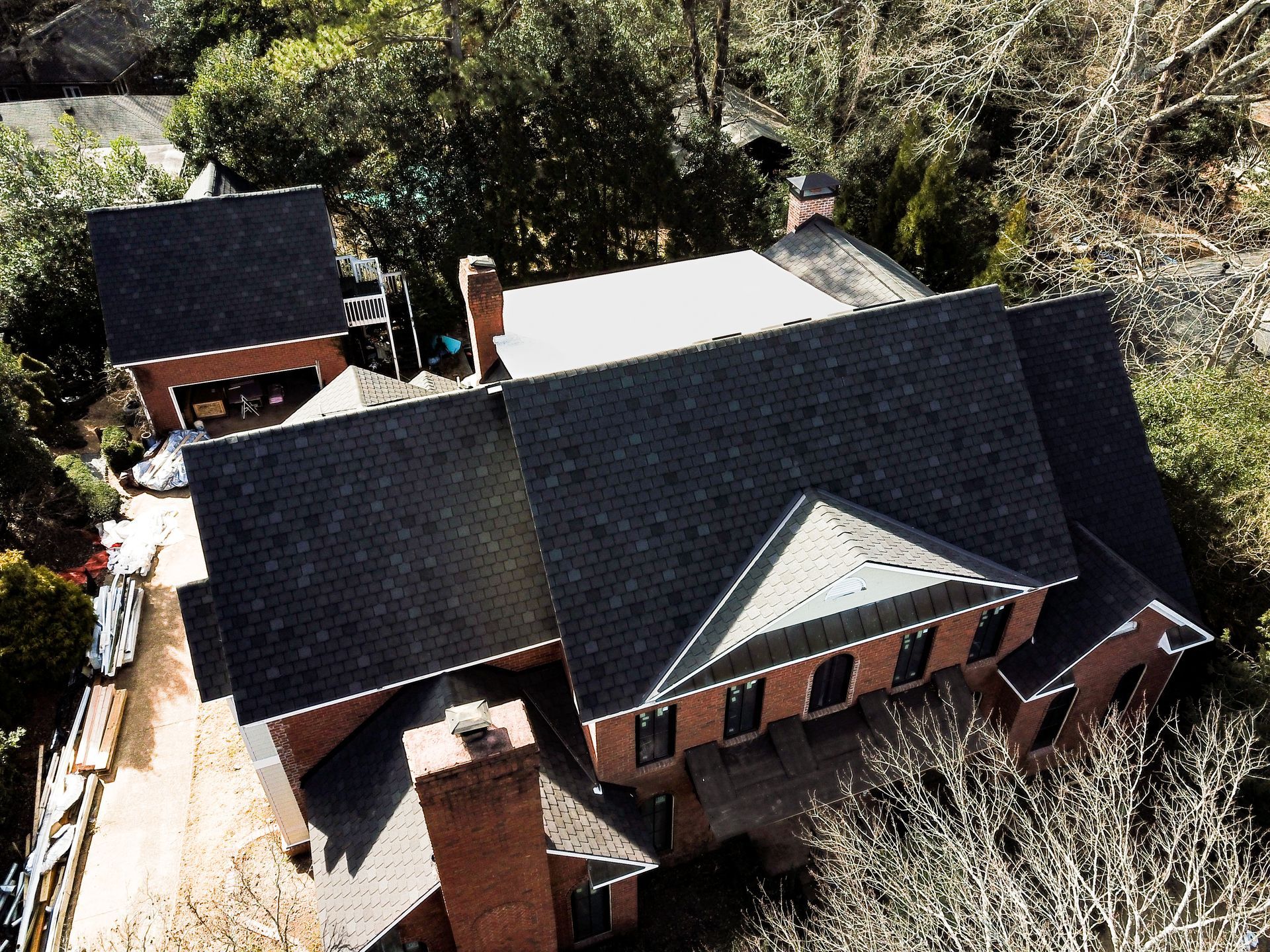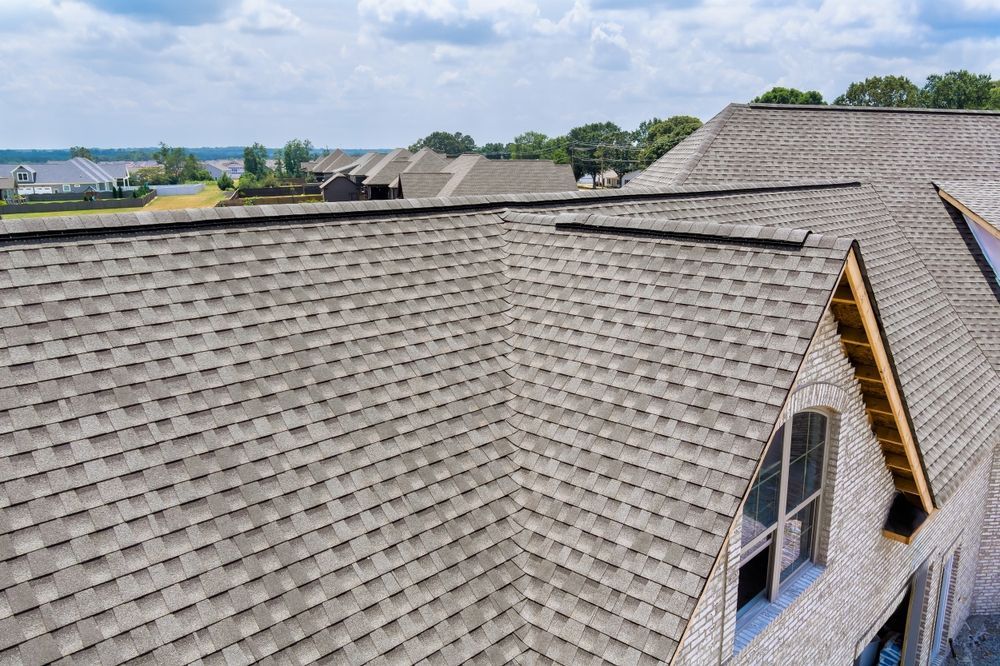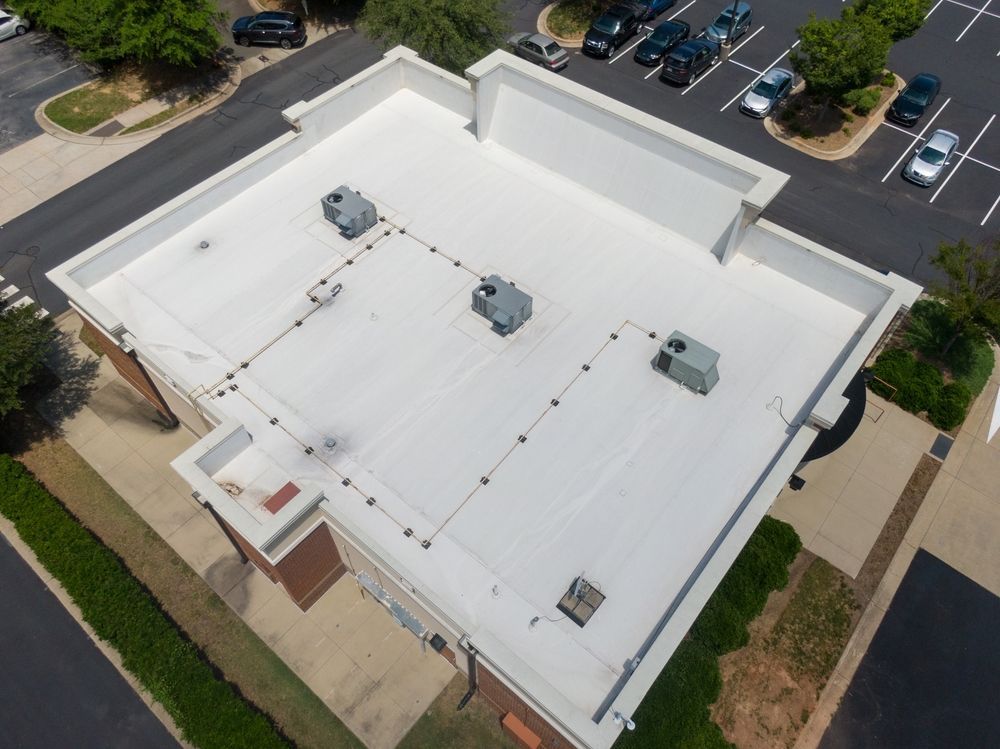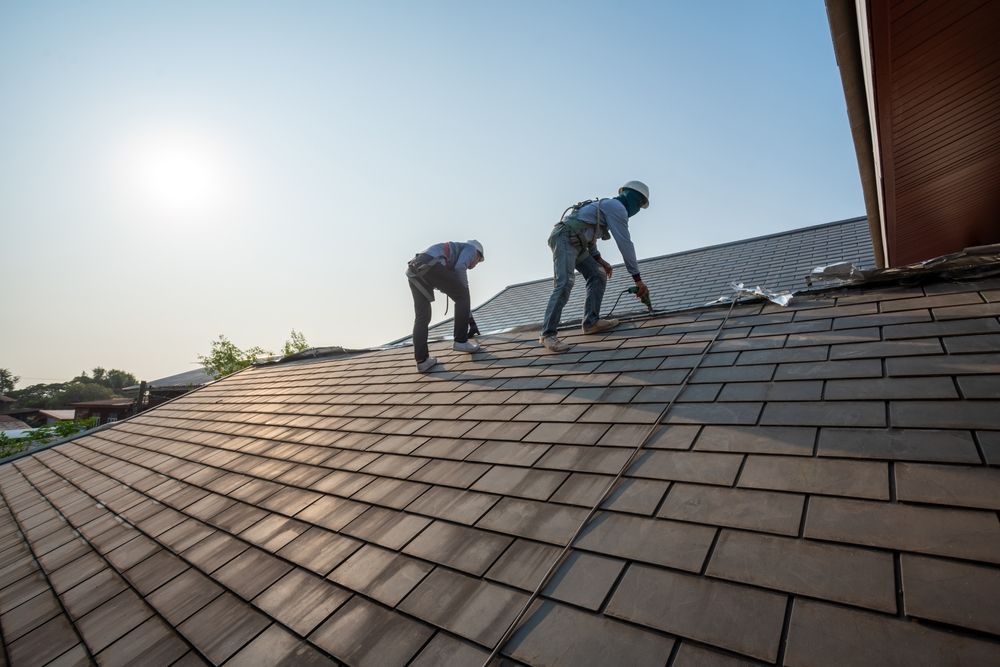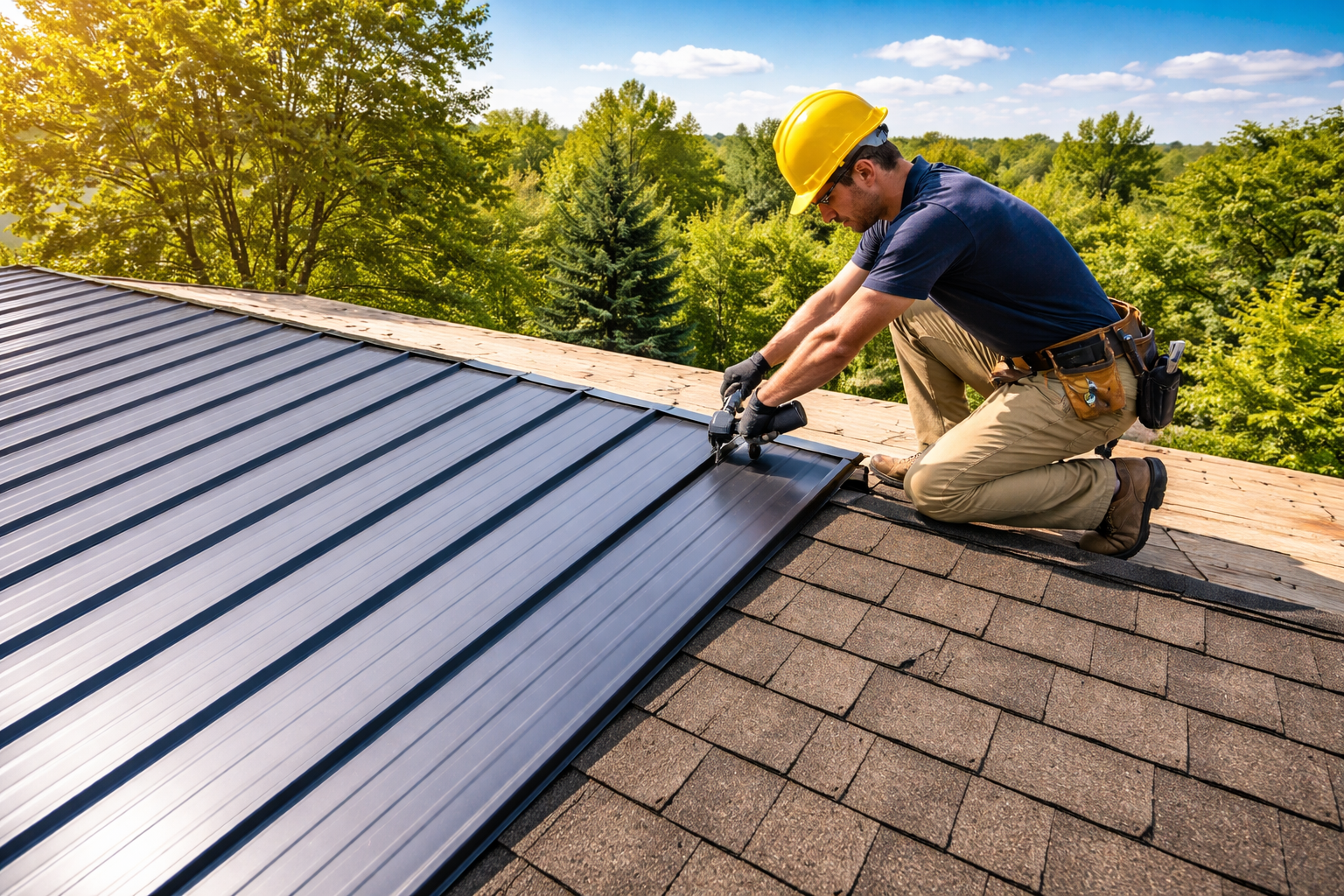Budget Breakdown: Roofing Material Cost Considerations
Wise homeowners budget ahead of time for major maintenance projects, such as a roof replacement. They calculate the material and labor costs, and likely add a few thousand dollars for incidentals or unexpected repair needs. But sometimes the material they budget for isn't suitable or cost-effective in the long run. Modern options, when installed professionally, can save homeowners thousands over time and have greater appeal to future potential buyers.
Roofing material plays a critical role in determining both the upfront and long-term costs of your roof. Selecting the ideal material not only influences the initial installation expense but also affects durability, energy efficiency, maintenance, and even home insurance premiums. Total Roof Solutions, a licensed, insured, and bonded roofing contractor serving the McDonough area, specializes in roof replacement in Atlanta, recognizing that the right roofing decision can help ease your budget over time.
How Does Roofing Material Affect the Overall Price of Your Roof?
The overall price of your roof is closely linked to your choice of material. Different options come with varying costs for installation, labor, and materials influenced by regional market trends and availability. Whether you choose asphalt shingles, metal roofing, slate, or other options, the upfront price will differ.
What Are the Main Roofing Materials and Their Typical Costs?
The main roofing materials include asphalt shingles, metal, wood shakes, slate, and clay or concrete tiles. Asphalt shingles are popular for their affordability, while metal roofs are favored for longevity and energy efficiency. Slate and clay tiles, though premium, offer superior durability and appearance. Typically, asphalt shingle roofs cost between $3.50 and $5.50 per square foot, while metal roofs range from $7.00 to $12.00 per square foot. Slate and tile roofs can cost up to $20.00 per square foot or more.
How Do Upfront Costs Vary Among Different Roofing Materials?
Upfront costs depend on the material’s price per square foot and the installation’s difficulty. A simple asphalt shingle roof may need less labor and handling, whereas metal roofs often need extra structural support and specialized installers, increasing labor costs. Premium materials like slate require precise techniques and more labor hours, contributing to higher upfront expenses.
What Role Does Roof Size and Complexity Play in Material Costs?
Roof size and complexity significantly impact cost. Larger roofs require more materials, while features such as steep pitch, multiple angles, dormers, and skylights complicate installation. These factors often lead to higher labor costs, increased material waste, and extra safety measures, adding to the total price.
What Are the Lifespan and Durability Differences Between Roofing Materials?
Evaluating a roofing material’s longevity and durability is crucial for long-term budget planning. Each material offers a different lifespan and resilience against severe weather, wear, and aging.
How Long Does Each Roofing Material Typically Last?
Asphalt shingles usually last between 15 and 30 years, while metal roofs can exceed 50 years with proper maintenance. Slate and tile roofs often last well over 75 years, sometimes lasting for the building’s entire life. Wood shakes typically endure 20 to 40 years but require regular upkeep. Although longer-lasting materials may have higher initial costs, they can offer better value over time.
How Does Material Durability Affect Long-Term Budget Planning?
Durability is key for long-term budgeting because frequent roof replacements or repairs add to lifetime costs. For example, a metal roof, with its higher initial cost but lifespan of over 50 years, often reduces long-term expenses compared to asphalt shingles that may need several replacements. Durable materials typically require fewer repairs, further decreasing ongoing maintenance expenses.
What Are the Common Maintenance Costs for Each Roofing Material?
Maintenance costs differ by material. Asphalt shingles may need occasional repairs due to wind or storm damage, while metal roofs generally require minimal care beyond periodic cleaning and rust inspections. Slate and tile roofs, though durable, might incur higher repair costs if individual pieces break or dislodge. Wood shakes need regular treatments to prevent rot and insect damage. Keeping a maintenance record helps estimate overall lifecycle costs.
How Can Energy Efficiency of Roofing Materials Influence Your Budget?
Energy efficiency is an important factor affecting your overall budget. Roofing materials with high reflectivity or insulation properties can reduce your utility bills by lessening cooling and heating demands.
Which Roofing Materials Offer the Best Energy Efficiency?
Metal roofing, especially when coated with reflective finishes, boosts energy efficiency by reflecting sunlight and cutting heat absorption. Modern energy-efficient asphalt shingles also lower cooling costs in hot climates. Roofing products that add superior insulation contribute to long-term energy savings, keeping homes cooler in summer and warmer in winter.
How Does Energy Efficiency Translate Into Lower Utility Bills?
Improved energy efficiency means your home absorbs less unwanted heat in summer and loses less warmth in winter. This reduces the load on HVAC systems and results in significant utility bill savings. For example, a highly reflective metal roof can lower cooling costs by up to 20% in hotter regions. Over time, these savings help offset the extra cost of energy-efficient roofing.
Are There Incentives or Rebates for Energy-Efficient Roofing?
Local governments and utility companies often provide rebates, tax credits, or incentives for installing energy-efficient roofing. These programs are designed to promote sustainable building practices by helping offset higher upfront costs. Financial incentives can reduce overall expenses and improve the return on investment for such roofing options.
What Are the Environmental and Insurance Cost Impacts of Roofing Material Choices?
Choosing a roofing material affects not only direct installation and maintenance costs but also broader factors such as environmental impact and insurance premiums.
How Do Sustainable Roofing Materials Affect Your Budget?
Sustainable options like recycled metal or eco-friendly shingles lower your home's environmental impact by reducing energy consumption and waste. These materials might qualify homeowners for green building certifications and additional financial incentives. Although the initial cost can be higher, energy savings and rebates often lower the lifetime expense.
Can Roofing Material Choice Influence Home Insurance Premiums?
Yes, the type of roofing material can impact home insurance premiums. Insurers look at a roof’s durability and risk profile when setting premiums. For instance, a metal roof, valued for fire, hail, and wind resistance, may lead to lower premiums compared to asphalt shingles, which might need more frequent repairs. It is important to discuss with your insurer how different materials affect your policy.
What Are the Local Regulations Affecting Roofing Material Selection?
Local building codes and regulations can determine which roofing materials are allowed. Municipal guidelines often specify requirements for fire resistance, energy efficiency, and environmental sustainability. Compliance with these codes helps avoid fines, delays, or additional costs during installation, and guarantees that the selected material meets performance and legal standards.
How to Compare Roofing Material Costs Effectively?
Comparing roofing material costs requires a careful analysis of both initial and long-term expenses to select the best material for your needs and budget.
What Should You Include in a Roofing Cost Comparison?
A thorough roofing cost comparison should consider:
- Material cost per square foot
- Estimated labor costs for installation
- Expected lifespan and durability
- Maintenance frequency and related expenses
- Energy efficiency and its impact on utility bills
- Potential reductions in insurance premiums
- Environmental benefits and available rebates
Evaluating these factors enables homeowners to balance upfront expenses with long-term value.
How to Use a Roofing Material Cost Calculator for Accurate Estimates?
Roofing material cost calculators factor in your roof’s dimensions, pitch, and architectural details. By entering key variables such as material type, labor rates, and regional cost differences, these calculators provide estimates that reflect both immediate and future costs. Total Roof Solutions encourages using these tools during planning to set realistic budgets and compare various options.
How Can You Choose the Right Roofing Material for Your Budget and Needs?
Choosing the right roofing material depends on factors like budget, aesthetic preferences, climate, and long-term goals. It’s essential to consider both short-term installation costs and long-term operating and maintenance expenses.
What Factors Should Influence Your Roofing Material Choice?
Key influences on your roofing material choice include:
- Initial Cost: Budget constraints may favor affordable options such as asphalt shingles.
- Long-Term Durability: Materials with long lifespans, like metal or slate, tend to offer better long-term value despite higher upfront costs.
- Energy Efficiency: If reducing utility bills is important, consider energy-efficient options like cool metal roofs.
- Climate and Weather Conditions: Local weather, including high winds, heavy rain, or extreme temperatures, determines which materials perform best.
- Aesthetic and Architectural Requirements: The material should also complement your home’s design.
- Local Regulations: Compliance with building codes and environmental guidelines is essential.
How to Balance Initial Cost With Long-Term Value?
Balancing upfront cost with long-term value requires analyzing the total cost of ownership. While asphalt shingles are initially affordable, they may need frequent replacement and repairs. In contrast, metal or slate roofing, though more expensive at the start, can offer substantial savings through durability, lower maintenance, reduced utility bills, and even lower insurance premiums over time.
When Should You Consult Roofing Experts for Cost Advice?
Consult roofing experts when the project becomes complex or when there is uncertainty about material performance in your area. Total Roof Solutions offers on-site assessments, customized cost estimates, recommendations based on local climate and building codes, and long-term financial planning, including maintenance schedules and energy savings calculations. Expert advice helps guarantee that your chosen material meets both budget requirements and performance expectations.
How to Get the Best Price on Your New Roof Without Sacrificing Quality?
Securing the best price for your new roof while maintaining quality involves research, negotiation, and strategic planning. Homeowners should consider the material and installation costs along with potential long-term savings from energy efficiency, reduced maintenance, and enhanced durability.
What Are Effective Ways to Lower Roofing Installation Costs?
Several strategies can reduce installation costs:
- Competitive Bidding: Obtain multiple quotes from reputable contractors to get competitive pricing. - Seasonal Discounts: Schedule installation during off-peak periods when demand is lower.
- Bulk Material Purchases: Bundle orders if multiple projects are planned to leverage bulk pricing.
- Energy-Efficient Incentives: Explore rebates and tax credits offered by governments or utility companies.
- Preventative Maintenance: Regular maintenance prevents minor issues from becoming major repairs, extending the roof’s lifespan and saving money.
How to Identify Transparent Pricing and Avoid Hidden Fees?
When evaluating contractors, request detailed estimates that break down expenses for materials, labor, permits, and any add-ons. Look for:
- Itemized Proposals: Clear breakdowns of each cost.
- Clear Communication: Contractors who explain cost components clearly.
- No Surprise Charges: Written contracts specifying no additional fees without prior discussion.
- Customer Reviews: Feedback from previous clients that highlights transparency in pricing.
What Questions Should You Ask Roofing Contractors About Costs?
To get clear value for money, ask:
- What is included in the total cost estimate (materials, labor, permits, disposal, etc.)?
- How does your pricing account for roof complexity and pitch?
- Are there any additional costs that might arise during installation?
- What warranties are offered for materials and workmanship?
- Can you provide references from similar recent projects?
Frequently Asked Questions
Q: How does roofing material affect the overall cost of my roof?
A: Roofing material influences both the upfront investment and long-term expenses such as maintenance and energy savings. Although more durable options come with higher initial costs, they often result in lower lifecycle expenses.
Q: Which roofing material is the most cost-effective over time?
A: While asphalt shingles are more affordable initially, metal roofing typically delivers better energy efficiency, superior durability, and reduced maintenance costs, making it more cost-effective long term.
Q: Can energy-efficient roofing really reduce my utility bills?
A: Yes, energy-efficient roofing, like reflective metal roofs, can decrease heat absorption, lower cooling costs by up to 20%, and lead to significant savings on utility bills over time.
Q: Do sustainable roofing materials affect insurance premiums?
A: Indeed, materials with high durability and fire resistance, such as metal or slate, may lower home insurance premiums due to the reduced risk of damage.
Q: How important is roof size and complexity when determining replacement costs?
A: Roof size and design complexity greatly influence both material and labor costs. Roofs with steep pitches or multiple angles usually require more resources and specialized installation, increasing the overall cost.
Q: What should homeowners ask roofing contractors for transparent pricing?
A: Request itemized quotes that detail labor, materials, permits, and any potential hidden fees. Detailed questions about cost components and warranties are key to transparency.
Q: When is it advisable to consult a roofing expert regarding material selection?
A: Consult an expert when project complexity increases, local climate challenges arise, or when balancing long-term savings against initial costs is necessary.
Q: Are there any rebates or incentives available for energy-efficient roofing?
A: Many local governments and utility companies offer rebates or tax credits for energy-efficient roofing, which can help offset the higher upfront costs.
Q: How do maintenance requirements differ between roofing materials?
A: Maintenance needs vary considerably; asphalt shingles might need occasional repairs, metal roofs require minimal cleaning and inspections, while premium materials like slate may need specialist repairs if damaged.
Q: What are the benefits of using a roofing material cost calculator?
A: A cost calculator provides accurate estimates based on dimensions, material type, and local labor rates, helping homeowners compare options effectively and set realistic budgets.
Final Thoughts
Total Roof Solutions leverages years of experience to help homeowners make these decisions, striking a balance between cost, durability, and energy efficiency. By considering every factor outlined above, customers can achieve long-term value without compromising on quality.
With proper planning and expert advice, investing in quality roofing materials not only boosts your roof’s look and performance but also supports your overall financial goals. Educated decisions in roofing help save money and provide lasting peace of mind.
For personalized advice and a detailed, customized cost estimate for your roof replacement project, contact Total Roof Solutions today. Their team is committed to delivering quality workmanship and superior service that protects your home and enhances your budget efficiency.
